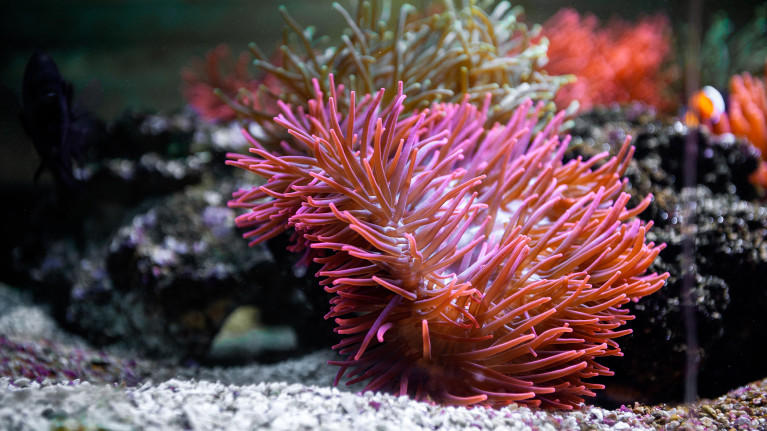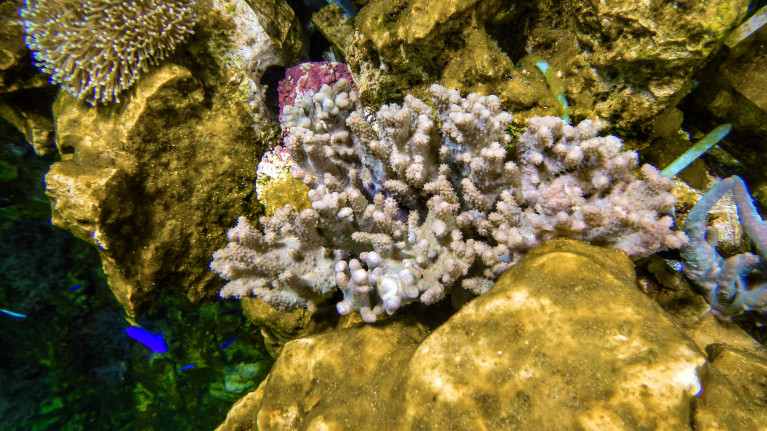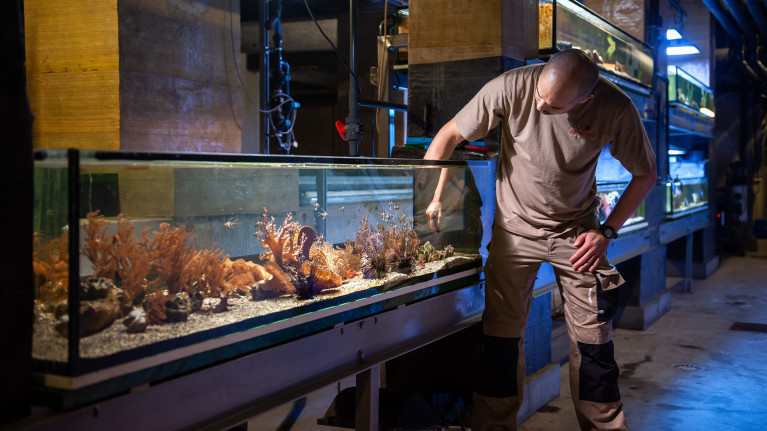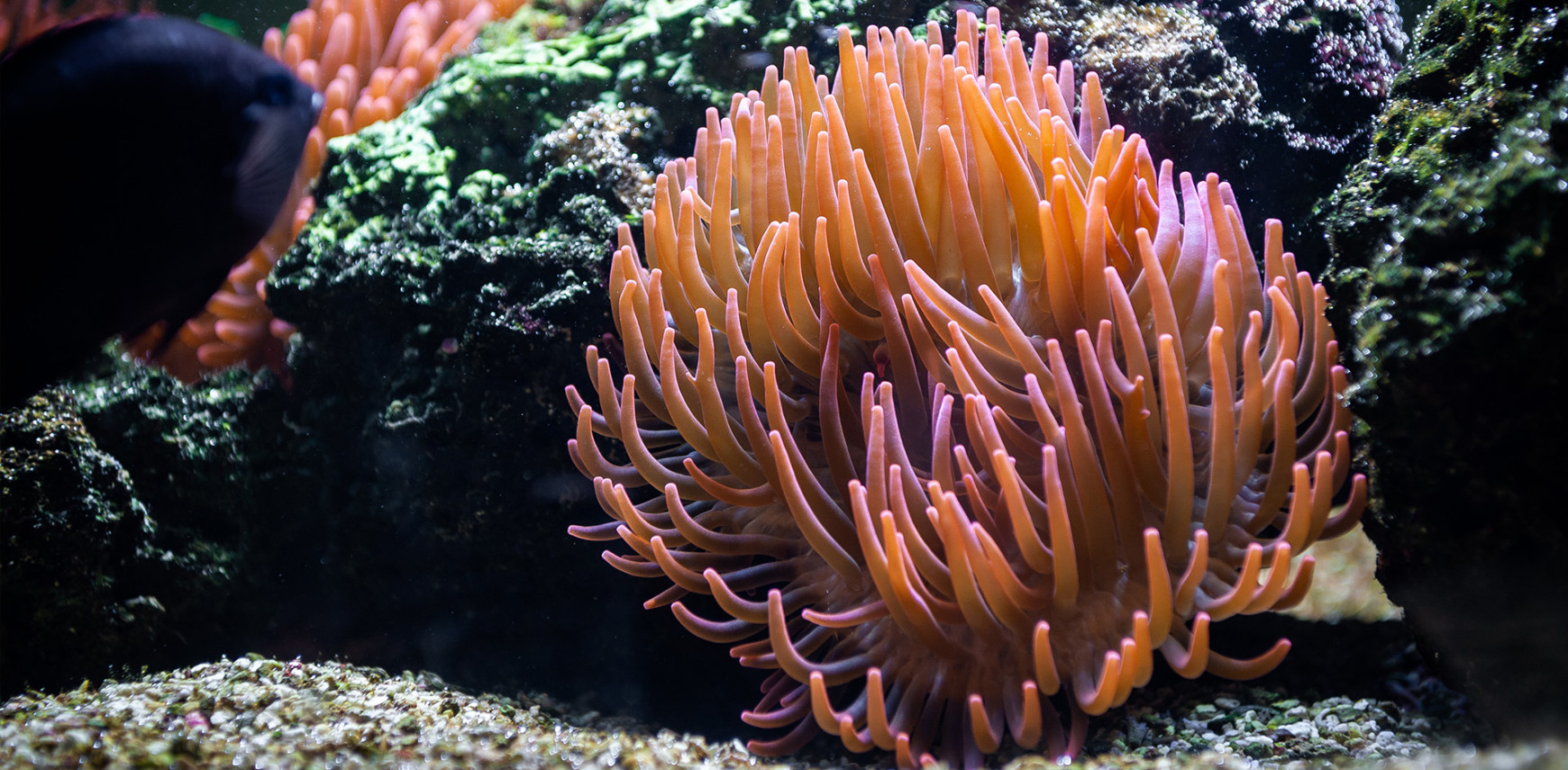Coral reefs in crisis:
Coral bleaching has already affected 8 out of 10 reefs worldwide
8 June is World Ocean Day: a day to raise global awareness for the vital importance of healthy oceans. They regulate the climate, produce oxygen, feed millions of people and are home to an astonishing wealth of life. Our oceans have, however, come under great pressure – as well as everything that lives beneath their surface. Among all marine life, coral reefs are among the most extraordinary and, sadly, the most vulnerable. All the more reason to shine an extra-bright spotlight on them today!
You probably know already that coral reefs all over the world are not doing well, but the situation has never been this dire. 84% of the world’s coral reefs have already been affected by coral bleaching, and scientists warn that recovery is nowhere in sight. Corals are vital to ocean life – and, by extension, to us – yet we are on the verge of losing them forever.

Coral bleaching explained: what exactly is it?
Ideally, coral reefs thrive in water temperatures between 25°C and 29°C, although the optimum temperature varies by species and location. Due to global warming, seawater temperatures are rising, putting corals under severe stress. In response to this temperature change, they expel the brightly coloured algae (zooxanthellae) with which they cohabit in a symbiotic relationship. Without these algae, which provide them with essential nutrients, corals lose a vital source of energy. As a result, they turn pale – or ‘bleach’ – and may even die.
Coral under pressure: how serious is the situation today?
In addition to rising temperatures, corals also react to ocean acidification, which occurs as seawater absorbs greenhouse gases from the atmosphere. Add to that the increasing number of severe storms that can cause physical damage to coral, and you have a veritable cocktail of stress factors that can prove to be fatal to reefs.
Since 1998, four global coral bleaching events have been recorded, each lasting for several months. In recent years, these events have not only lasted longer but are also increasingly destructive. We’ve been in the midst of another such episode since 2023, and it shows no signs of letting up – with disastrous consequences. According to data from the US agency NOAA, 83.7% of all coral reefs worldwide have been affected.

Is recovery still possible?
Coral reefs are under pressure, but they are not beyond saving. They can recover from bleaching, provided the stress caused by rising temperatures does not last too long and there are no additional threats such as pollution or overfishing.
Researchers in zoos and aquariums around the world are working hard to reintroduce corals into the wild and restore damaged reefs. Antwerp ZOO is also contributing to the solution: since 2015, the ZOO has housed one of the largest living reef aquariums in Europe, including a coral cultivation centre. In a carefully controlled system – with optimal lighting, water flow, temperature and acidity – various coral species are propagated.
This approach not only raises awareness among visitors but also supports the international exchange of coral and expertise, without putting pressure on wild reefs. Antwerp ZOO also supports restoration projects in the wild, where young coral fragments are grafted onto damaged reefs.

What can YOU do to keep our oceans healthy?
Summer – and the long summer holidays – are just around the corner, so we’d like to share a few tips to help you do your bit for healthy seas and thriving coral reefs:
- Choose sustainable, reef safe sunscreen that does not contain oxybenzone. This chemical is a UV filter that is detrimental to the quality of sea water.
- Planning to go snorkelling this summer? Do it responsibly by choosing an organisation that puts animal welfare and nature conservation first.
- Don’t buy souvenirs made from tortoise shell, coral or seashells. Instead, choose gifts that support the local community.
- Cut back on plastic, particularly when you’re travelling or spending a day at the beach. Say no to disposable bottles and straws! There are plenty of reusable alternatives.
- Is it sunny out? Leave the car at home and go by bike or on foot. Good for the climate, the coral – and your health!

